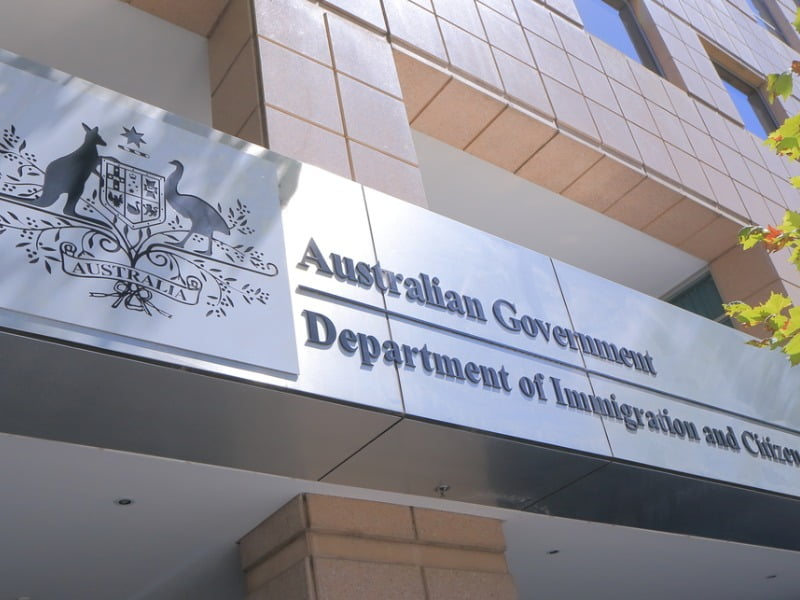The federal government will cut the number of business innovation and global talent visas on offer from next year as part of a significant rejigging of Australia’s skilled migration program.
While the overall number of skilled visas issued by the federal government in 2021-22 will remain the same, there will be more employer-sponsored visas issued, with an accompanying sharp decrease in the business innovation and global talent streams.
It comes as an influential think-tank called for the whole Business Innovation and Investment Program (BIIP) to be scrapped and for the brakes to be pumped on the Global Talent program until its effectiveness is properly evaluated.

The number of business innovation visas, under the BIIP, doubled from 6862 in 2019-20 to 13,500 in the current financial year. But the government will cut this down to 11,000 in 2021-22, to coincide with a change in eligibility for the scheme, the Sydney Morning Herald reported.
The number of visas issued under the Global Talent program has risen rapidly since it launched as a pilot program in 2018-19 with 1000 visas issued. There were 15,000 places in the scheme on offer this financial year, but the government is set to cut this down to 11,000 in 2020-21.
While these business and innovation-focused streams are being sliced, the number of employer-sponsored visas will be increased from 22,000 to 23,500. There will also be a lift in regional visas and skilled independent visas.
Australian Investment Council chief executive Yasser El-Ansary welcomed the emphasis on regional areas in the visa changes but said schemes that focused on filling skills gaps in high-growth sectors – such as the Global Talent program – are crucial.
“Reallocating the visa mix to ensure regional areas are well supported with sufficient numbers of skilled workers is a critical step for sustaining these local economies over the short to medium term,” Mr El-Ansary told InnovationAus.
“As we rebound out of the Covid-19 downturn we must ensure that the economic recovery is underwritten by big gains in innovation and technology to drive increased productivity. To be internationally competitive, highly innovative fast-growth Australian businesses need access to world-leading talent in key areas where we are still building local capability.
“We’ve seen too many examples over the years of domestic businesses that cannot access talent and capital being forced to relocate overseas, taking with them highly skilled jobs and economic activity.”
The Global Talent visa was made permanent in late 2019 after a 12-month trial period. The program was overhauled last year, with the Global Business and Talent Attraction Taskforce established to oversee the scheme.
It was revealed earlier this month that about 70 per cent of successful applicants under the scheme were already in Australia on another visa category.
Interest in the scheme has increased rapidly, with 15,000 places this year. But this will be cut by nearly a quarter in the coming financial year.
In a new report, the Grattan Institute has called for a more significant readjustment of Australia’s skilled migration program, with the think-tank urging the government to scrap the BIIP program entirely and to scale back the Global Talent Program while it is reviewed.
More than one in four permanent skilled visas are issued under these two programs, the report found, and this is not efficient for the growth of the economy.
The BIIP scheme is primarily providing visas to people who are “older, speak little English and earn lower incomes”.
“Each visa allocated to the BIIP is a visa not allocated to skilled workers, who by virtue of being younger, more skilled and able to earn higher incomes, are likely to make a larger contribution to the Australian community. The BIIP should be abolished, and those visas reallocated to skilled workers,” the Grattan Institute report said.
The government has announced a series of changes to the scheme which will come into effect from July, including upping the innovation investment requirements for the investor visas.
But this is “at best tinkering on the margins and, at worst, exacerbating existing problems with the program”, the report said.
The Global Talent program is still “unproven”, the think tank said, and should be scaled back to no more than 5000 visas until there is evidence that it is effective.
“There is no compelling evidence to justify expanding the scheme at such a rapid rate, especially at the expense of visas already with a strong track record of selecting skilled workers who succeed in Australia,” the report said.
Do you know more? Contact James Riley via Email.

